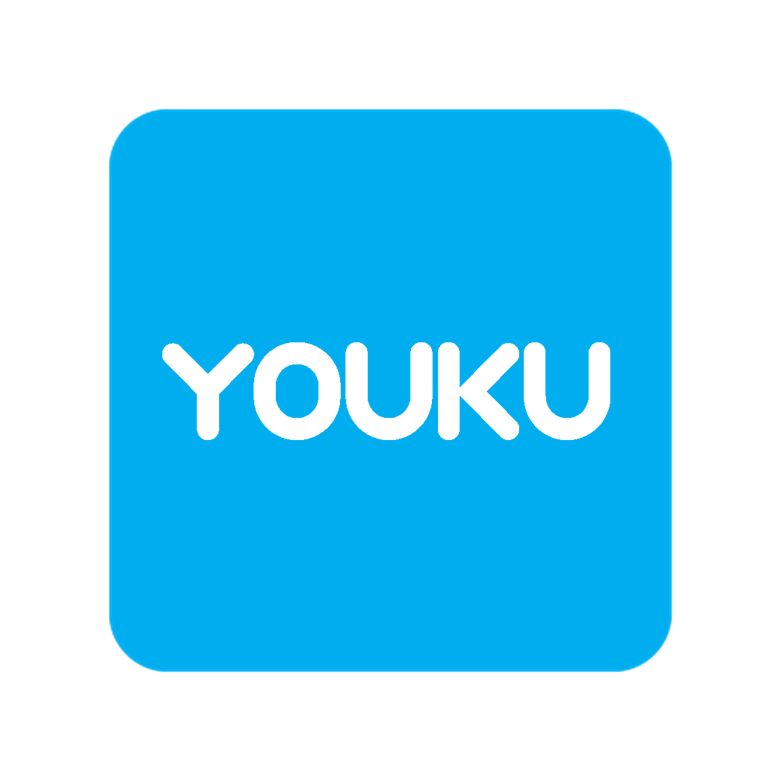Three important questions you should be asking yourself as we enter a new decade

For most of us, the end of a year feels like a natural time to reflect and reset. It’s a time to think about what’s gone well, what hasn’t, and what we will vow to do differently in the coming 12 months. But this year feels different, and that’s because it is different.
It’s different because we are approaching the end of an entire decade – the end of the ‘twenty-tens’. The end of the ‘teensies’ or the ‘tens’ as some like to call it. We’re approaching the end of an era – an era that has brought so much change, both good and bad.
So, as we prepare to lead our organisations into the 2020’s, it’s time for us to question what value we as leaders, and our organisations will contribute to the world over the next 10 years, and, ultimately, how we can ensure both will be thriving in 2030 - no matter what is thrown their way. So, in this blog, I’m going to plot out what I think some of those questions should be.
The 2010’s – an era of unpredictable change and disruption
But before I do, let’s take a moment to ponder exactly what change we have all been witness to over the past decade. After all, in many ways, the world we live and work in is unrecognisable from what it was pre-2010’s.
It’s been a decade of societal activism against injustices in movements such as #BlackLivesMatter and #MeToo. It’s been a decade of huge advances in LGBTQ rights, with same-sex marriage being legalised in 18 countries. It’s been a decade of huge strides in gender equality – with a century of women’s suffrage being celebrated both in the UK and the US, and the number of women on FTSE100 boards doubling. Climate change has finally become a globally recognised issue and more and more people and organisations are taking it seriously. We’ve also seen the unstoppable rise of big tech and unprecedented connectivity. New ways of working have emerged – a huge 70 per cent of all professionals do some work remotely, and total spending on the gig economy hitting a colossal $4.5 trillion in 2018.
We started the decade reeling from the global financial crisis and are ending it with the US president facing possible impeachment and the UK about to leave the EU. Extraordinary things now seem ordinary. This has been an era of both unprecedented change and unprecedented uncertainty. Organisations have been founded and blossomed - the biggest, most valuable companies in the world are all relatively young. Many others have disappeared without trace but wouldn’t have thought that was their destiny as we started the last decade. Some were more prepared to tackle the unknowns than others - that’s because they asked the right questions at the right time, both of themselves and of the organisations they led.
Now, as we sit on the cusp of a new era, you as the leader must be the one asking all the right questions - questions that will challenge you to see things differently and disrupt the status quo. Questions that will allow you to understand the threats and opportunities in your market. Questions that will help you see exactly where your organisation is going. Questions that will lead to accurate and robust answers – answers that will help ensure your success in the next ten years.
Three important questions you should ask yourself as we prepare to start a new decade
So, what are the right questions we should be asking ourselves as leaders? Well, the list could of course be endless. So, for the purposes of this blog, I’m going to cover what I think are three of the timeliest, and arguably the most important questions we as leaders should be asking ourselves right now:
- Does your organisation have a clear purpose, and are you really living it?
- How prepared are you to attract (and retain) the next generation of workers?
- How will technology disrupt your people and their jobs?
Does your organisation have a clear purpose, and are you really living it?
In August this year, the Business Roundtable modernised its principles around the role of an organisation, stating that they should serve all stakeholders, including customers, employees, suppliers, communities and the planet, not just shareholders. This marks an explicit shift in the traditional thinking around organisational purpose to take us into the next decade.
So, to be successful in the years to come, leaders must start to rethink the purpose of the organisations they lead, regardless of the size of their businesses or what industries they operate in. Granted, this may be far easier for those leading smaller businesses which were founded on an idea or passion of a founder, but it’s something we must all put some real thought into. As the philosopher and professor Edward Freeman says in this Tedx Talk, people don’t start businesses just to make money. People start businesses because they’re on fire about something, because they’re on fire about an idea. As Freeman says, Steve Jobs was on fire about the power of the personal computer, John Mackey, the CEO of Whole Foods, was on fire about the potential impact of helping people to eat more healthily. So, think about what the fire is behind your business – why does it exist? What gets you up in the morning? What gets your employees up in the morning?
As we enter a new decade, we must shift our mindset to appreciate that both purpose and profit are mutually achievable. In fact, purpose can drive profit, if it’s done in a meaningful way. So, remember, your organisation’s purpose needs to create value for all stakeholders, inside and outside of the organisation, and this purpose needs to be communicated publicly. It needs to feel authentic in the eyes of all your stakeholders. They need to feel connected to it. They need to feel inspired by it. To them, it needs to be more than black and white words on a screen. Only then, will it be truly embedded into your DNA and drive long-term value in the decades to come.
How prepared are you to attract (and retain) the next generation of workers?
Over the past few years, there’s been so much buzz around Millennials that many have been guilty of ignoring the impending influx of Generation Z into the world of work. The reality is that the generational makeup of our workforces is changing as each year passes, and too few of us are paying this the attention it deserves.
The oldest Millennials turned 38 years old in 2019, and are now firmly established within management positions, even progressing into leadership within many of our organisations. On the other hand, the oldest Generation Z’s celebrated their 23rd birthdays this year, thus are taking their first formative steps into the world of work. Astonishingly, by 2030, this Generation Z will make up a huge 30% of our workforces - which begs the question, how prepared are we to attract (and retain) this new generation of workers?
Firstly, to attract Generation Z to our businesses, we must first understand them. As many commentators argue - and I’m inclined to agree - instead of using birth years to make assumptions about each generation, we should use their behaviours. And it’s far easier to make sense of these behaviours if we start to try to appreciate the cultural climate they grew up in.
Born in the mid-late 90s, this generation grew up in a time of growing instability and unrest, but also in a time of innovation - in contrast to Millennials, who, many would argue - grew up in a booming, prosperous and stable time. As Jack Dorsey, a millennials researcher says in his TEDx Talk, Generation Z won’t remember a life without technology, before gay marriage or an African American US President. This cultural backdrop will no doubt play into how they will act and operate in a work context.
Now, whilst I’m hesitant to cast stereotypical assumptions about anyone of any generation, I think David and Jonah Stillman make some interesting observations in their book, ‘Gen Z @ Work’. In this video, they outline a number of key traits they believe Generation Z have, including:
- They are more competitive and less collaborative
- They enjoy working in their own space, and don’t like open office concepts
- They live in a ‘figital’ world – they see no difference between physical and digital worlds • 84% prefer face-to-face communication
- They are looking for work-life blend, not work-life balance
Personally, I found these research results surprising, in conflict with what many assume and they raise a lot of questions. So, how well do you know this new generation of workers? Will you need to adapt your traditional way of doing things in order to position your business as an employer of choice in their eyes? How will you keep hold of them once you’ve attracted them? Interestingly, one of the key messages the Stillman’s articulate is the need to train your Millennials – those people who will be managing your Generation Z day-to-day. The two generations are more different than you think they are, so it’s important you think about what you can do now to ensure they work effectively with one another. Food for thought.
How will technology disrupt your people and their jobs?
Disruption was everywhere in the 2010’s, and it’ll be the same story in the 2020’s. So, we should be feeling fairly well prepared for it, right? In theory, yes.
However, research from EY has shown that it is actually those organisations who feel ready for disruption which are the least well-prepared. So, perhaps we’re not as ready for disruption as we think we are? Perhaps our over-confidence could be causing us to become complacent? Possibly. This, of course, is a problem, but it’s not one that can’t be solved, or at least tackled, by asking the right questions.
As leaders, one of the most important questions we should be asking ourselves here is, how will technology and disruption impact our people and their jobs? And it’s not a question of if it will impact jobs, it’s a question of how it will impact them.
Contrary to popular belief, I think this disruption will largely be positive. In fact, whilst 75m jobs could be lost globally by 2022, 133m new ones could be created. After all, as McKinsey explain, when Excel was invented in 1985, everyone assumed all the bookkeepers would be instantly out of work. Of course, this didn’t happen - now, we all use it, and it’s even created new jobs and industries. So, the question we should be asking ourselves are, which jobs will likely be changed or even displaced as automation takes hold?
It’s true that machines have made great strides in mastering certain tasks, for example, marking essays or diagnosing eye conditions, as Andy Goldbloom, CEO of Kaggle, explains in his TEDTalk. Their forte tends to be frequent, ‘low-skilled’ tasks. Tasks whereby huge volumes of data are available to help dictate subsequent actions. What they aren’t good at, as Goldbloom explains, is tackling more novel situations when historical data isn’t available – for instance, writing copy for a marketing campaign or putting together a business strategy. Or in the case of my own business, understanding the cultural fit between an individual and a role.
So, when looking at the roles in existence in your business, it’s sensible to deduce, then, that it is likely that it will be those high volume, predictable tasks which could be the first contenders to be changed or even automated. Case in point - in June 2019 - Oxford Economics have predicted that by 2030, 20m manufacturing jobs around the world could be replaced by robots. However, jobs that require compassion, creativity or social intelligence are likely to continue to be carried out by humans for decades to come. One thing that is for sure though, is that in the long-term – yes - more technology means more disruption, but it also means change to existing jobs and the creation of entirely new ones. The question is, is your business ready?
If the last decade has taught us anything, it’s that we can’t predict the future. No one can. But what we can do is try to ask ourselves the most pressing questions, at the most pressing times - even if we don’t know all the answers right away. Doing so will help us reflect and recalibrate, and ultimately put us in the best position possible to lead our businesses into a new transformative age.







